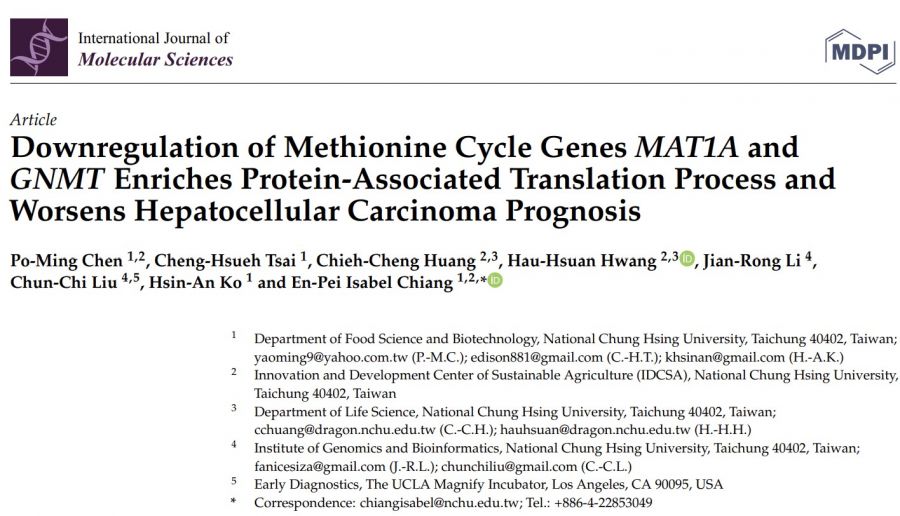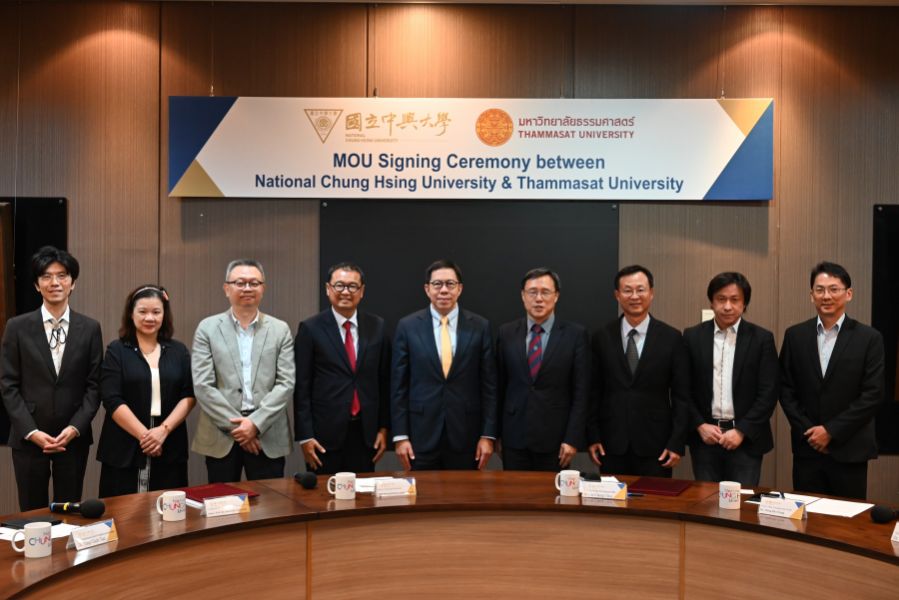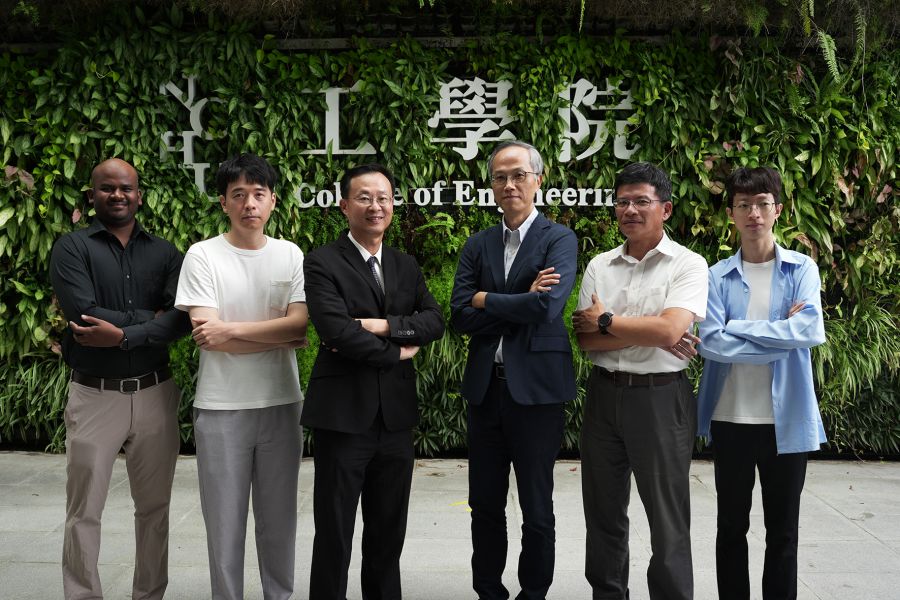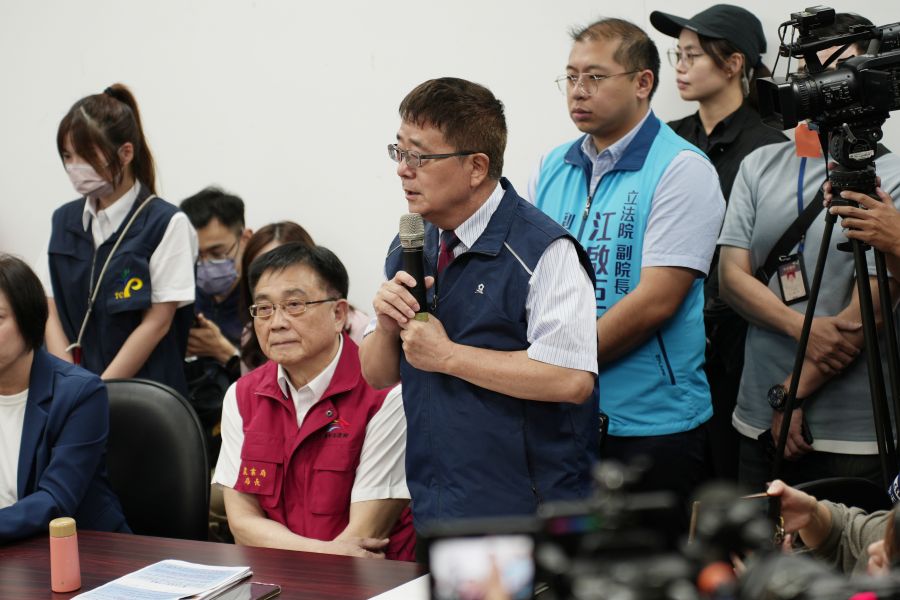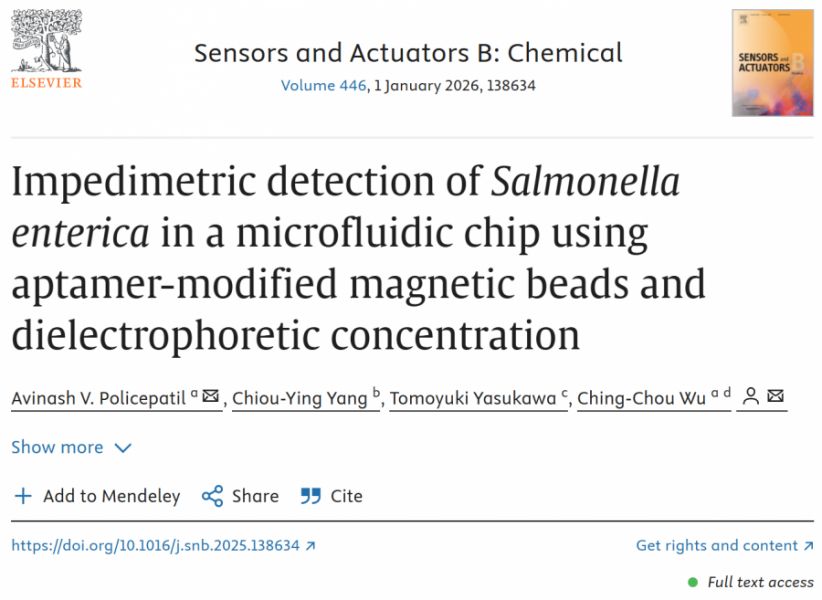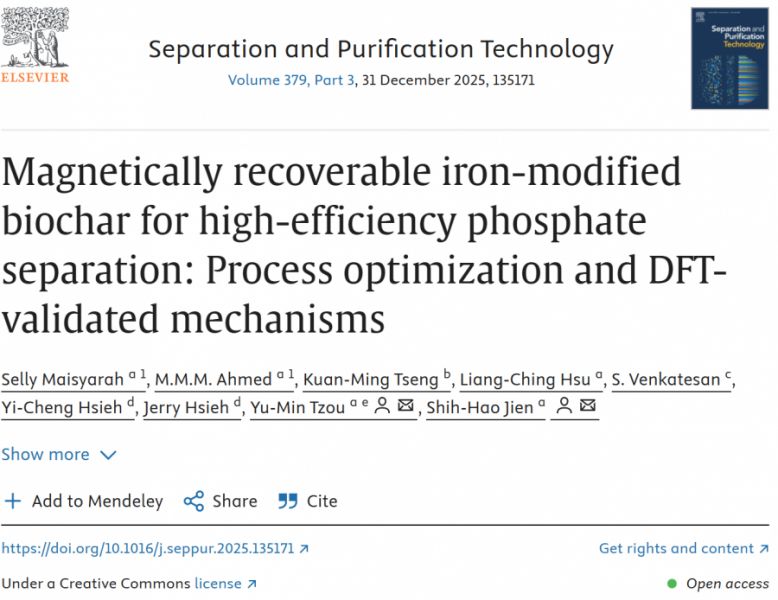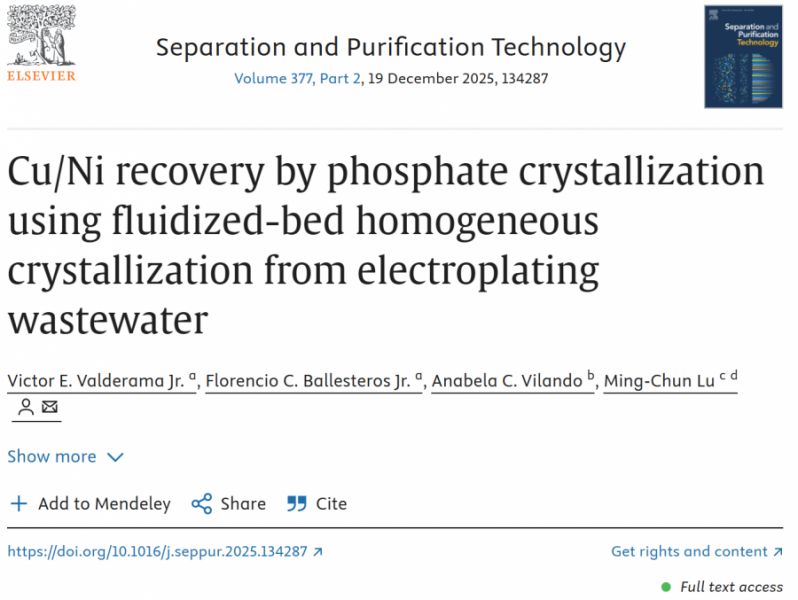循環農業:農業廢棄物再資源化【食品暨應用生物科技學系/蔣恩沛特聘教授】
| 論文篇名 | 英文:Downregulation of Methionine Cycle Genes MAT1A and GNMT Enriches Protein-Associated Translation Process and Worsens Hepatocellular Carcinoma Prognosis 中文:甲硫胺酸循環基因 MAT1A 和 GNMT 缺失會促進蛋白質的轉譯過程並惡化肝細胞癌的預後 |
| 期刊名稱 | INTERNATIONAL JOURNAL OF MOLECULAR SCIENCES |
| 發表年份,卷數,起迄頁數 | 2022, 23, 481 |
| 作者 | Chen, Po-Ming; Tsai, Cheng-Hsueh; Huang, Chieh-Cheng; Hwang, Hau-Hsuan; Li, Jian-Rong; Liu, Chun-Chi; Ko, Hsin-An; Chiang, En-Pei Isabel(蔣恩沛)* |
| DOI | 10.3390/ijms23010481 |
| 中文摘要 | 甲基供應分子S-腺苷甲硫氨酸 (adoMet) 主要在肝臟中合成。甲硫胺酸腺苷轉移酶 1A (MAT1A) 和甘氨酸 N-甲基轉移酶 (GNMT) 是甲硫胺酸循環代謝中關鍵酵素。我們從癌症基因組圖譜 (TCGA) 中收集配對肝細胞癌 (HCC) 與其鄰近正常肝組織的 42 個 RNA-seq 數據。在 42 名 HCC 患者中未發現 MAT1A 或 GNMT RNA 突變。在 RNA-Seq 數據中標註了 11,799 個基因,並通過基因集富集分析 (GSEA) 依據其表現量來研究低 MAT1A 和低 GNMT 的表現型之影響。我們在REACTOME_TRANSLATION 基因集在熱圖中富集並可視化數據,找出低 MAT1A 與高 MAT1A 以及低 GNMT 與高 GNMT 之間的基因剖繪的差異、並鑑定 REACTOME_TRANSLATION 基因組中的 43 個基因,這些基因是 HCC 中強有力的預後因子。顯著預測的基因被稱為真核轉譯起始 (EIF3B、EIF3K)、真核轉譯延伸 (EEF1D) 及核醣體蛋白 (RPs) 表現與癌症預後相關。表達各不同程度MAT1A 和 GNMT 的細胞模型證明,若同時恢復 MAT1A 和 GNMT 表達會降低細胞增殖、侵襲及 REACTOME_TRANSLATION 基因 EEF1D表現,這與人類肝癌若表現完整MAT1A 和 GNMT預後更好有一致性。我們發表新的發現,即 MAT1A 與 GNMT 基因突變或缺陷會提升與人類肝癌不良預後相關之蛋白質轉譯過程。此乃第一項證明 MAT1A 和 GNMT 這兩種參與甲硫胺酸循環的關鍵酶會減弱核醣體轉譯的功能之研究。我們提出了一種GNMT 和 MAT1A 表達缺失可能導致人類肝癌預後不良的新機制。 |
| 英文摘要 | The major biological methyl donor, S-adenosylmethionine (adoMet) synthesis occurs mainly in the liver. Methionine adenosyltransferase 1A (MAT1A) and glycine N-methyltransferase (GNMT) are two key enzymes involved in the functional implications of that variation. We collected 42 RNA-seq data from paired hepatocellular carcinoma (HCC) and its adjacent normal liver tissue from the Cancer Genome Atlas (TCGA). There was no mutation found in MAT1A or GNMT RNA in the 42 HCC patients. The 11,799 genes were annotated in the RNA-Seq data, and their expression levels were used to investigate the phenotypes of low MAT1A and low GNMT by Gene Set Enrichment Analysis (GSEA). The REACTOME_TRANSLATION gene set was enriched and visualized in a heatmap along with corresponding differences in gene expression between low MAT1A versus high MAT1A and low GNMT versus high GNMT. We identified 43 genes of the REACTOME_TRANSLATION gene set that are powerful prognosis factors in HCC. The significantly predicted genes were referred into eukaryotic translation initiation (EIF3B, EIF3K), eukaryotic translation elongation (EEF1D), and ribosomal proteins (RPs). Cell models expressing various MAT1A and GNMT proved that simultaneous restoring the expression of MAT1A and GNMT decreased cell proliferation, invasion, as well as the REACTOME_TRANSLATION gene EEF1D, consistent with a better prognosis in human HCC. We demonstrated new findings that downregulation or defect in MAT1A and GNMT genes can enrich the protein-associated translation process that may account for poor HCC prognosis. This is the first study demonstrated that MAT1A and GNMT, the 2 key enzymes involved in methionine cycle, could attenuate the function of ribosome translation. We propose a potential novel mechanism by which the diminished GNMT and MAT1A expression may confer poor prognosis for HCC. |

